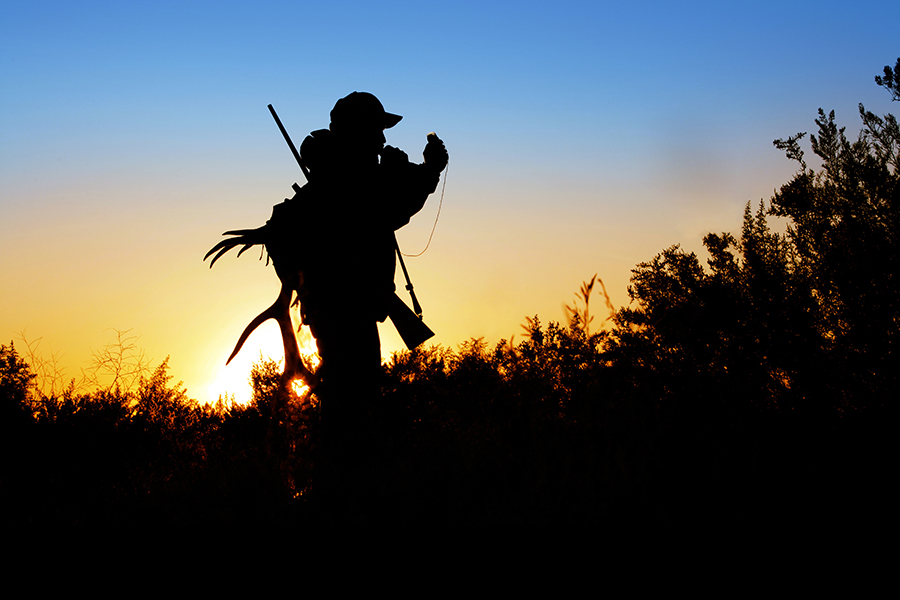According to multiple reports, hunting and outfitting are major economic drivers in Montana, although outfitters say their impact could be considerably larger if not for a law limiting nonresident license availability.
Rachel VandeVoort, director of the Montana Office of Outdoor Recreation, says hunting helps support rural areas’ economic growth. She says more people are spending money on experiences like hunting than they have in the past.
“There’s been a shift — people are spending money on experiences rather than tangible goods,” she said.
Hunting and shooting contributed $93 million to Montana’s outdoor recreation gross domestic product in 2017, while guided tours and outfitters contributed $74 million, according to a 2019 Headwaters Economics report.
“Traditionally, the top three are lodging, food and beverage, gas and retail,” VandeVoort said. “Retail has fallen below. It totally points to spending on experiences of hunting and fishing.”
Northern Rockies Outfitters owner Rich Birdsell says he’s seen more tourists interested in booking a hunting trip with his company in the last decade than in all of his 24 years in business.
But Birdsell’s business isn’t flourishing, despite the increased interest. He’s turning clients away. Not because he’s booked, but because of the limited availability of nonresident hunting licenses, which account for most of his customers.
“Montana FWP regulates the amount of nonresident licenses that are available,” Birdsell said. “With more and more people that want to come to Montana, it’s more and more difficult to get a license without any say or ability set aside for businesses like mine.”
If Birdsell’s clients aren’t lucky enough to draw a license, they can’t hunt. This means they can’t book a trip with him, let alone anywhere in Montana.
Historically, Birdsell used outfitter-guaranteed, also called outfitter-sponsored, licenses for his clients, meaning he bought licenses in advance for his clients to use without relying on the luck of a lottery drawing.
But outfitter-sponsored licenses disappeared in 2011 following the passage of voter Initiative 161 in November 2010, which increased cost and decreased nonresident license availability.
Montana Fish, Wildlife and Parks (FWP) offers 17,000 Nonresident Big Game Combination licenses with hiked fees since the initiative passed. Nonresident Big Game (elk and deer) Combination licenses surged from $653 to $912. Deer Combinations licenses went from $343 to $542 and Elk Combination licenses increased from $593 to $812, according to FWP.
Backers of the initiative argued the rules would open up opportunities for non-guided hunters, but outfitters say it ultimately capped their industry’s economic potential.
“The initiative was brought about by Montana sportsmen who don’t care for what we do,” Birdsell said. “There’s a lot of sportsmen in our state who think that we are making a profit off of a game animal that everybody owns. But what they don’t realize is what we do … We bring a lot of money into the rural communities.”
Birdsell, who is based out of Kalispell, guides in the Sweetgrass Hills, Badger-Two Medicine and Cascade, all based in rural areas in FWP Region 4, east of Glacier National Park.
Rural towns like Cascade and Sunburst, which both have a population of fewer than 1,000 people, receive tourism dollars that they wouldn’t normally see if outfitters like Birdsell didn’t bring them there.
According to the ITRR report, 17,400 clients went on a guided hunting trip in 2017 in Montana and outfitter revenue totaled more than $55 million.
According to the U.S. Bureau of Economic Analysis, $8.8 billion was spent on hunting, shooting and trapping in 2017. Guided tours and outfitted travel accounted for $12.9 billion nationally, an 11.4 percent growth, making it one of the fastest growing activities nationwide.
But despite outfitted trips’ growing popularity and their economic benefit, Birdsell is concerned the rising costs and limited availability of licenses will negatively impact his business.
“I would like to see the state recognize what we do for the economy and the state of Montana, and in that recognition be a little more generous to outfitters and our ability to get licenses for our clients,” he said.
